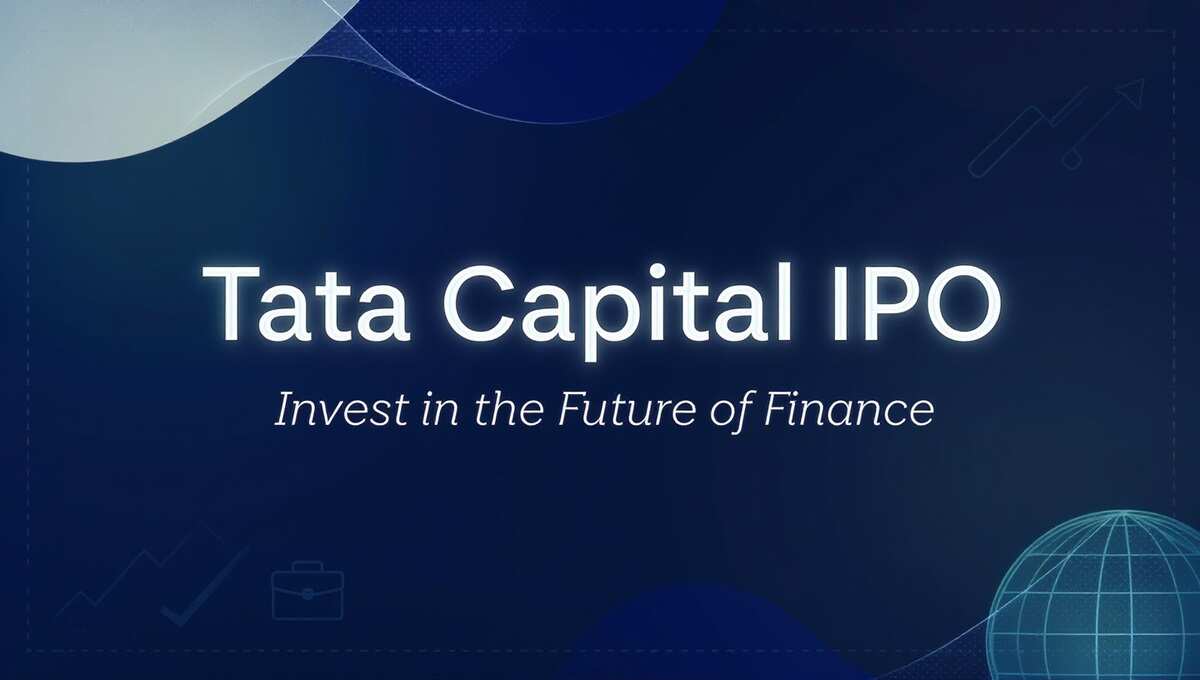
Tata Capital IPO GMP: A Deep Dive into India’s Financial Powerhouse
The Tata Capital IPO – A Game Changer?
The Indian stock market is buzzing with excitement as Tata Capital, the financial services arm of the esteemed Tata Group, has launched its much-anticipated Initial Public Offering (IPO). With an eye-popping issue size of ₹15,512 crore, this offering is set to be the largest IPO of 2025 and the biggest-ever in the Non-Banking Financial Company (NBFC) sector in India.
But what does this mean for investors? And more intriguingly, what does the Grey Market Premium (GMP) indicate about the market’s expectations? Let’s delve into the details.
Tata Capital IPO: The Nitty-Gritty
Before we get into the market sentiments, let’s understand the fundamentals of the IPO.
- Price Band: ₹310 – ₹326 per equity share
- Issue Size: ₹15,512 crore
- Fresh Issue: ₹6,846 crore
- Offer for Sale (OFS): ₹8,666 crore
- Lot Size: 46 shares
- Listing Date: October 13, 2025
- Allotment Date: October 9, 2025
The IPO comprises a combination of a fresh issue and an OFS. The fresh issue aims to raise capital to bolster Tata Capital’s balance sheet, while the OFS allows existing shareholders, including Tata Sons, to divest a portion of their holdings.
Grey Market Premium (GMP): What Does It Tell Us?
The GMP is an unofficial indicator of an IPO’s potential listing price. It’s determined by the difference between the expected listing price and the issue price. A positive GMP suggests strong demand and investor confidence.
As of October 6, 2025, the GMP for the Tata Capital IPO stood at ₹7.5, implying an expected listing price of ₹333.5 (₹326 + ₹7.5). This translates to a potential gain of approximately 3% from the upper end of the price band.
However, it’s essential to note that GMP can fluctuate based on various factors, including market conditions and investor sentiments. Therefore, while a positive GMP is encouraging, it shouldn’t be the sole criterion for investment decisions.
Subscription Status: Investor Sentiment in Real-Time
The subscription status provides real-time insights into investor interest and demand for the IPO.
- Day 1 Subscription: 39%
- Qualified Institutional Buyers (QIBs): 52%
- Retail Individual Investors (RIIs): 35%
- Non-Institutional Investors (NIIs): 29%
The strong subscription from QIBs and RIIs indicates robust investor confidence in Tata Capital’s prospects. The moderate interest from NIIs suggests a wait-and-watch approach, possibly due to current market volatility.
Why Tata Capital?
Tata Capital stands out in the financial services sector due to its:
- Strong Parentage: Backed by the reputable Tata Group, ensuring credibility and trust.
- Diverse Portfolio: Engaged in various segments like retail lending, wealth management, and infrastructure financing.
- Robust Financials: Demonstrated consistent growth and profitability over the years.
These factors make Tata Capital an attractive proposition for investors seeking stability and growth in the financial sector.
Should You Invest?
While the GMP and subscription status are promising, potential investors should consider:
- Valuation: Assess if the IPO is reasonably priced compared to industry peers.
- Market Conditions: Consider the current market volatility and its potential impact on the listing.
- Investment Horizon: Determine if the investment aligns with your financial goals and risk appetite.
Given the Tata Group’s reputation and Tata Capital’s strong fundamentals, the IPO presents a compelling opportunity. However, it’s crucial to conduct thorough research or consult with a financial advisor before making investment decisions.
Conclusion: The Road Ahead
The Tata Capital IPO is more than just a financial event; it’s a testament to the growing strength and diversification of the Tata Group’s financial services arm. With a positive GMP, strong subscription numbers, and a solid business model, the IPO is poised to make a significant impact on India’s capital markets.
As always, while the prospects are promising, investors should exercise due diligence and make informed decisions. After all, in the world of investing, knowledge is as valuable as capital.
Note: Investors are advised to conduct their own research and consult with financial advisors before making investment decisions.

